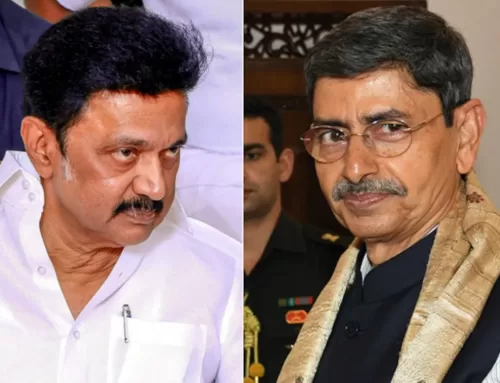– Abul Kalam Azad Sulthan, Advocate, High Court of Judicature at Madras and Madurai Bench of Madras High Court & Partner, Spicy Law Firm.
A Will is a crucial document for individuals in India to ensure the smooth distribution of their assets. Understanding how to write a will in India is vital for proper succession planning. From testator details to beneficiary information, this step-by-step guide covers important laws, guidelines, and the role of an executor. By following these crucial steps and consulting a legal expert, you can draft a comprehensive and legally valid will to protect your legacy and ensure your wishes are carried out effectively after your passing.
Key Takeaways:
- A will in India is a legal document that outlines how a person’s assets and property should be distributed after their passing.
- Important points to include in a will are: Testator details, Declaration, Beneficiary details, Executor details, Property/asset details, Share division, and Signatures with witnesses.
- Laws governing wills in India include The Indian Succession Act of 1925, The Code of Civil Procedure, 1908, The Indian Registration Act of 1908, and The Indian Stamp Act, 1899.
How to Write a Will in India?
The process of writing a will in India is crucial for estate planning and ensuring the proper distribution of assets. The testator must understand the legal requirements and considerations involved in drafting a valid will. Here are some important points to keep in mind:
Tips for Choosing the Right Witnesses
- Selection: Choose witnesses who are trustworthy and have no personal interest in the will.
- Qualifications: The witnesses must be mentally sound and of legal age.
- Presence: Ensure that both witnesses are present when the testator signs the will.
Knowing how to select appropriate witnesses is necessary to validate the authenticity of the will and avoid legal complications.
Factors to Consider When Appointing an Executor
- Educational Background: Consider appointing an executor with a legal or financial background.
- Trustworthiness: The executor should be someone reliable and capable of handling estate matters efficiently.
Consider these factors when choosing an executor to ensure a smooth administration of the will and proper distribution of assets.
What are the Laws Governing a Will?
Understanding the Indian Succession Act, 1925
Even though the process of drafting a will may seem straightforward, it is necessary to understand the legal framework that governs it. In India, the Indian Succession Act of 1925 lays down the laws pertaining to wills. This Act sets out the rules and regulations regarding the creation, execution, and interpretation of wills. It is crucial for individuals to abide by the guidelines outlined in this Act to ensure the validity and enforceability of their will.
How Hindu Law and Muslim Law Affect Your Will
Even in a diverse country like India, where different religious customs and traditions are followed, the laws governing wills can vary depending on one’s religious background. Succession laws in India are influenced by both Hindu Law and Muslim Law. These laws impact how assets are distributed upon the death of the testator. It is important for individuals to understand the implications of these laws when drafting their will to ensure a smooth succession process.
Succession laws in India are intricate and can significantly impact the distribution of assets after one’s demise. Understanding the Indian Succession Act of 1925 and how Hindu Law and Muslim Law affect wills is crucial for ensuring the legal validity and enforceability of a will. Failure to adhere to these laws can result in contentious disputes and delays in asset distribution.
Role of an Executor
How to Choose the Right Executor for Your Will
All testators creating a will in India must carefully select an executor to ensure the proper execution of their wishes. There’s a significant responsibility placed on the executor, who plays a crucial role in distributing the assets as outlined in the will. It is imperative to choose someone who is trustworthy, responsible, and capable of handling the often complex legal and financial matters involved in executing a will.
Responsibilities and Powers of an Executor in India
Responsibilities: The executor of a will in India holds significant responsibilities and powers. They are tasked with ensuring that the testator’s wishes, as stated in the will, are carried out accurately and efficiently. Additionally, the executor must manage the estate, pay off any debts or taxes owed, and distribute the assets to the beneficiaries according to the terms of the will. It is crucial to appoint an executor who is well-versed in legal matters and capable of administering the estate professionally.
A carefully chosen executor can expedite the process of executing a will in India. They act as a fiduciary, ensuring that the testator’s final wishes are respected and carried out with precision and care.
Guidelines to be Followed
To ensure the validity and effectiveness of your will in India, there are some important guidelines that should be followed. Any individual looking to draft a comprehensive will must be aware of the legal requirements and considerations involved. Consulting a lawyer is highly recommended to navigate through the complexities of estate planning and succession.
Essential Clauses to Include in Your Will
To create a robust will, it is crucial to include important clauses that clearly outline your wishes and intentions regarding the distribution of your assets. Any will should contain detailed information about your beneficiaries, executor, property/assets, share division, and signatures of the testator and witnesses. These clauses help ensure that your assets are distributed according to your wishes and minimize the risk of disputes among heirs.
How to Update or Revoke a Will in India
If there is a need to update or revoke a will in India, the testator should carefully consider the process involved. The Indian Succession Act allows individuals to make changes to their will during their lifetime. The testator can revoke or amend the will by creating a new one or adding a codicil, which is a supplementary document that alters specific provisions in the original will.
The process of updating or revoking a will should be carried out with caution to ensure that the changes are valid and legally enforceable. Seeking legal advice from a lawyer experienced in estate planning can help navigate the complexities of modifying a will.
To wrap up
To wrap up, drafting a comprehensive will in India is a crucial step in succession planning to ensure that your assets and property are distributed according to your wishes after your passing. Understanding the legal requirements and steps involved in writing a will is vital to avoid any complications for your loved ones in the future. By following a step-by-step guide, individuals can navigate the process of creating a valid and enforceable will in India.
Consulting with a legal expert, such as a lawyer specializing in wills and estate planning, can provide valuable assistance in drafting a will that accurately reflects your intentions. From detailing your assets and beneficiaries to appointing an executor and ensuring proper witness signatures, each aspect of the will-writing process plays a crucial role in safeguarding your legacy. By taking the necessary steps and seeking professional guidance, individuals can confidently create a comprehensive will that provides peace of mind for themselves and their loved ones.
FAQ
Q: What is a Will and why is it important in India?
A: A Will is a legal document where an individual declares how their assets and property should be distributed after their death. In India, it is crucial to have a Will to ensure that your wishes are followed and your assets are distributed as per your intentions.
Q: What are the key components that should be included in a Will in India?
A: When drafting a Will in India, important details to include are: testator details, declaration of sound mind, beneficiary details, executor details, property/asset details, share division among beneficiaries, and signatures of the testator and witnesses.
Q: What are the legal considerations and laws governing Wills in India?
A: In India, Wills are governed by laws such as The Indian Succession Act of 1925, The Code of Civil Procedure, 1908, The Indian Registration Act of 1908, and The Indian Stamp Act, 1899. It is important to understand and adhere to these legal regulations when drafting a Will in India.







Leave A Comment